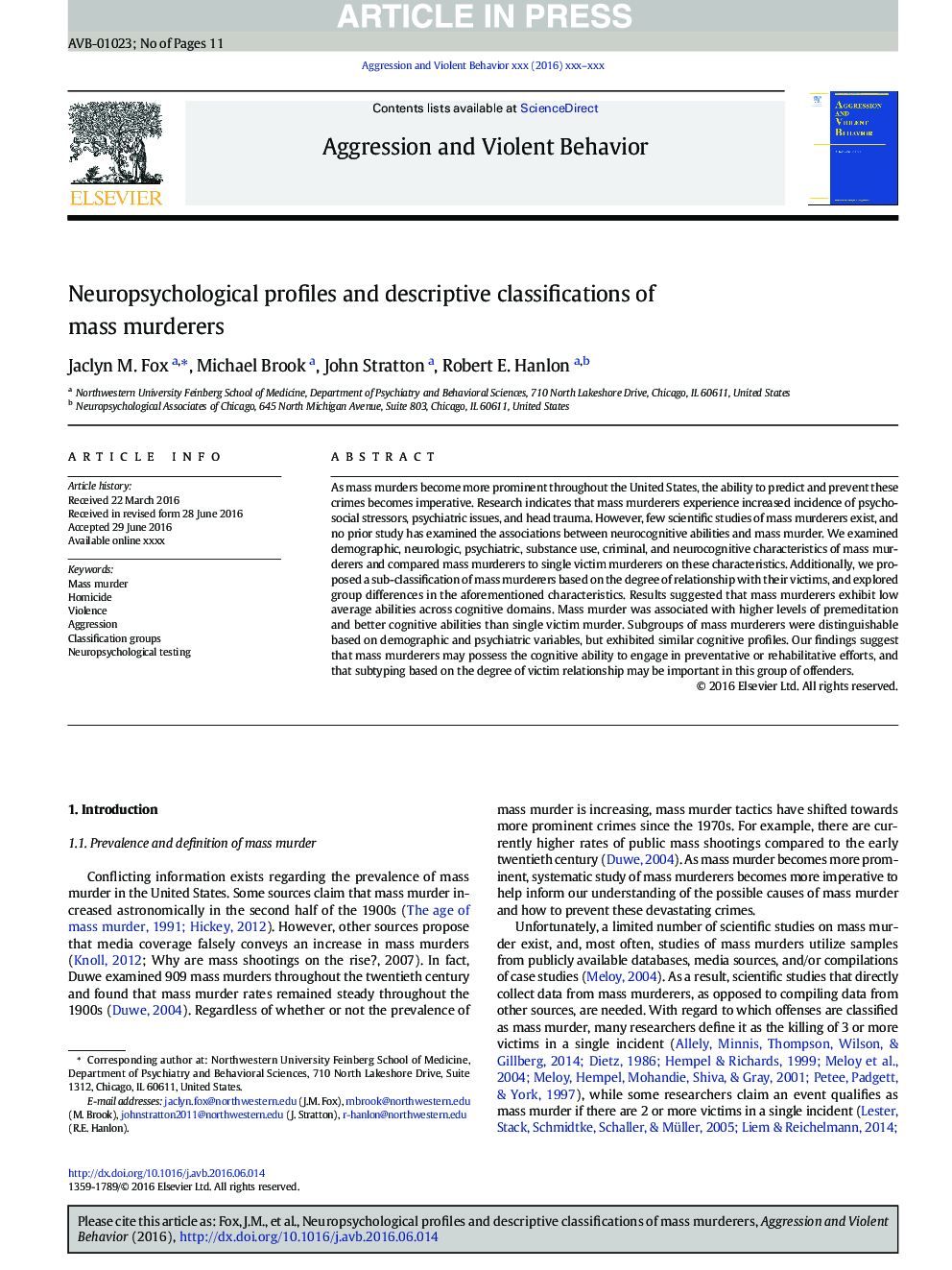| Article ID | Journal | Published Year | Pages | File Type |
|---|---|---|---|---|
| 4760173 | Aggression and Violent Behavior | 2016 | 11 Pages |
Abstract
As mass murders become more prominent throughout the United States, the ability to predict and prevent these crimes becomes imperative. Research indicates that mass murderers experience increased incidence of psychosocial stressors, psychiatric issues, and head trauma. However, few scientific studies of mass murderers exist, and no prior study has examined the associations between neurocognitive abilities and mass murder. We examined demographic, neurologic, psychiatric, substance use, criminal, and neurocognitive characteristics of mass murderers and compared mass murderers to single victim murderers on these characteristics. Additionally, we proposed a sub-classification of mass murderers based on the degree of relationship with their victims, and explored group differences in the aforementioned characteristics. Results suggested that mass murderers exhibit low average abilities across cognitive domains. Mass murder was associated with higher levels of premeditation and better cognitive abilities than single victim murder. Subgroups of mass murderers were distinguishable based on demographic and psychiatric variables, but exhibited similar cognitive profiles. Our findings suggest that mass murderers may possess the cognitive ability to engage in preventative or rehabilitative efforts, and that subtyping based on the degree of victim relationship may be important in this group of offenders.
Related Topics
Health Sciences
Medicine and Dentistry
Forensic Medicine
Authors
Jaclyn M. Fox, Michael Brook, John Stratton, Robert E. Hanlon,
